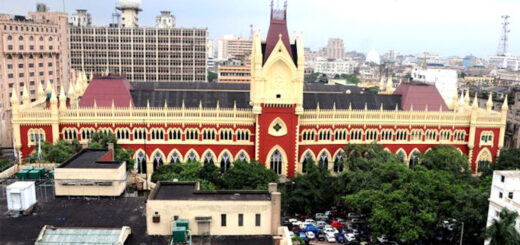The Supreme Court has rejected a landowner’s request regarding the urgent clause for the planned development of the Yamuna Expressway, stating that it aligns with the law.

The Supreme Court noted that the use of the urgency clause for the Yamuna Expressway’s development by the State was lawful, dismissing the landowner’s appeal against the Allahabad High Court’s decision. The Court supported the application of Sections 17(1) and 17(4) of the Land Acquisition Act, 1894, which allowed Uttar Pradesh to skip the inquiry under Section 5-A for the project. It also confirmed the compensation method used by the Allahabad High Court, which provided a 64.7% increase for landowners. The High Court’s Division Bench, while affirming the acquisition process, stated that the urgency clause was not applied in a “mechanical” manner.
Justices B.R. Gavai and Sandeep Mehta remarked, “It is undeniable that the Yamuna Expressway is a crucial route for millions traveling from Delhi to Agra. It also links the important upcoming Jewar Airport to nearby regions. To think of the Yamuna Expressway as just a highway, without considering the potential for development of surrounding lands for commercial and residential purposes, is unrealistic. A project of this scale will certainly involve the surrounding areas, contributing to the overall growth of Uttar Pradesh.” Senior Advocates Jayant Bhushan, Niranjan Reddy, V.K. Shukla, and Chinmoy Pradip Sharma represented the Appellants, while Solicitor General Tushar Mehta and Senior Advocates Ranjit Kumar, Gopal Jain, Rajive Bhalla, and Mohd Shoeb Alam represented the Respondents.
The appeals came from differing decisions of the Allahabad High Court in the cases of Shyoraj Singh v. State of Uttar Pradesh and Kamal Sharma v. State of Uttar Pradesh. One court canceled the acquisition notifications, while another supported them as necessary for a comprehensive development plan. The landowners contested the acquisition process, claiming that the urgency provisions in Sections 17(1) and 17(4) of the Act denied them a chance to raise objections. They also challenged the compensation method and argued that the inquiry process was improperly bypassed. The Supreme Court upheld the acquisition, referencing its previous ruling in Nand Kishore Gupta v. State of Uttar Pradesh (2010), which approved similar acquisitions for the Yamuna Expressway. The court noted that the use of Sections 17(1) and 17(4) was warranted due to the project’s nature and scale, stating that delays could lead to encroachments and higher costs, which would harm public interest.
The Court emphasized that the acquisition aimed at the integrated development of lands next to the Yamuna Expressway. It stated that the acquisition for the Expressway could not be separated from the acquisition of adjacent lands, as established in the Nand Kishore case. The Bench highlighted that the goal was to align land development with the construction of the Expressway, fostering overall growth for the public good. It remarked that the Expressway and the development of surrounding lands are essential parts of the overall project. Therefore, the Court concluded that the State’s use of the urgency clause was lawful. As a result, the Supreme Court dismissed the landowners’ appeals.
Cause Title: Kali Charan & Ors. v. State of U.P. & Ors. (Neutral Citation: 2024 INSC 898)









